So, your CV has taken you through to the first stage of the selection process and now you’ve been invited for an interview. This is a moment of elation and then dread, you’ve got good news, but your work is not done, as (like it or not) interviews require time and preparation. Here’s why.
An interview is the key step towards your future job, it gets you a foot in the door and it is your chance to ‘shine, shine, shine’. For your best chances of success, you should take the time to prepare thoroughly to perform as best as you can. These 3 steps are important for good preparation, look, read, think.
- Look for information about the company. Search the internet; check their presence on social media and in the news. Write down any questions you want to ask them.
- Read the job description carefully and try to find examples that show you have the necessary skills.
- Think about the questions you might be asked and prepare answers.
We will explore the most common questions later. First, you need to know that there are several types of interviews. The most common types are presented below.
- The traditional job interview is the one that you are most likely to encounter and it is the one during which you will be interviewed by a representative of the company, perhaps even the manager. You might be working with he or she directly, so they want to get a feel for who you are and whether you have what it takes to get the job done. They will ask you about your experience and what you can bring to the company. Make sure you know your key qualities and your strengths and, if applicable, use them. Some common questions in a traditional interview include:
“Why would you be good at this job? …Why did you apply for this position?… Tell me more about yourself.”
- The panel interview is the one during which you are being questioned by a group of people that could include HR people, management and employees. Each representative is responsible for asking questions relevant for their position. These interviews can be quite scary, if you feel very nervous remember these people were once where you are now.
- The behavioural interview is the one during which you will be asked about specific situations from your previous jobs that demonstrate certain skills or abilities applicable to the new job. The interviewer wants to see how you react in certain situations and what you do to fix the issues that may arise. It is important if it was a teamwork that you emphasize your role and what exactly you did and what were then consequences of your actions. The type of questions posed in this interview can also be found in any of the other types.
- There are also group interviews that some companies will use to find the right person/people from a group of applicants. This type of interview is often used in the airline industry and recruitment into university nurse education courses. The process usually starts with a presentation about the company/industry or profession. Sometimes each candidate will be asked to give a presentation on an industry related topic, followed by a series of questions. An important aspect about this kind of interviews is that the employer is observing the way you interact with the rest of the group. Are you emerging as a leader or are you more likely to perform tasks given by others? These attributes are needed within an organization, particularly if you are going to working in a public facing role or dealing with complex situations.
- A phone interview is a good option for employers if the candidates are not local, but more often these interviews are a first step as a pre-screening call prior to a face-to-face interview. You can expect questions that are aimed at encouraging you to describe yourself more or to clarify some aspects from your CV. Occasionally you might also be asked behavioural questions (see point 3 above).
- Last, but not least, you can be asked to participate in a lunch interview (no you won’t be asked to prepare lunch). This type of interview is most often the second in a longer interview process. The lunch will include additional members of the team, and very occasionally other candidates. This will seem very strange, but the potential employer is in wanting to see how you interact with other people and whether you fit in with the organisational culture. REMEMBER: is not about the food, be careful not to order anything too expensive or messy to eat. Pay attention to your table manners and do your best to be as tidy as possible. As with all interviews, remember to get to know what the company focus/strategy is and prepare questions as this will demonstrate your interest in joining the team.
You need to make the right impression
It is said that it takes up to 30 seconds for somebody to form a first impression. Here’s how to make a good first impression
- Pay attention to your dress code; make sure your appearance is clean, smart and business-like, even if the company has a dress down policy.
- Be relaxed, but keep your back straight and SMILE, keep eye contact with the interviewer (but don’t stare them out!) Avoid fidgeting, playing with a pen or hair. Listen carefully and show interest.
- Avoid criticising former employers or colleagues as this will reflect badly on you. (even if you left your last job because you fell out with the boss!) Do not interrupt or argue and avoid looking down.
Frequently asked questions at interview
The main part of any interview and of greatest importance is answers you are going to give to the questions you will be asked. You should try to think about the more difficult questions that may arise, but do not worry too much about them as about 85% of the questions are predictable.
Preparation will give you confidence and decrease the chances of being taken by surprise by something you have not thought about. If you need a moment to think about what you are about to say, you can state “That is a very interesting question. Could you give more information about…”.
The STAR technique is a very useful tool that you should keep in mind when answering questions:
Situation: describe the situation that you were in or task that you needed to accomplish. You must describe an actual situation you took part in, not a generalized description. Be sure to give enough details to make the situation understandable and clear. It can be from your previous job, a volunteering job or any other relevant event.
Task: What goal were you working towards?
Action: Describe the actions you took to address the situation with an appropriate amount of detail and keep the focus on you. What specific steps did you take and what was your particular contribution?
Result: Describe the outcome of your actions and don´t be shy about taking credit for your behaviour but try not to lie or exaggerate either. What happened? How did the event end? What did you accomplish? What did you learn? Make sure your answers contain multiple positive results and reflects how you used skills that are transferable.
Finally, here are some of the most frequently asked questions and how you can shape your answers
- Tell me more about yourself.
The interviewer has already read your CV, so you should emphasize those skills and abilities that are required for the job at hand and bring something new that may be relevant. You might be asked to clarify or give more information about something you mentioned in your CV.
- What do you know about the organisation?
Use the knowledge you gathered while browsing internet. If you have any questions, it is better to leave them for the end.
- Why do you want to work for us?
Here is your chance to show what motivates you and what you find attractive in the position. Show interest and commitment.
- Where do you see yourself in 3 or 5 years? / What are your plans for the years to come?
You should talk about your professional goals, whether you want to take part in any courses.
- What are your strengths?
Emphasize your qualities, don´t be afraid to talk about your achievements, but do not exaggerate the truth. Also, connect your answer to the qualities mentioned in the job advert.
- What are your weaknesses?
Present your weak points and explain how you try to overcome these.
- Why is there a gap in your work history?
A tricky question. Be honest here. It might be you tool a career break to support family, or you had a period of unemployment. Don’t be thrown by this question, make sure you are clear that you didn’t waste this time. While you were busy perhaps you were able to think about the direction you wanted for your career, or maybe you undertook some personal/professional development. Be brave and tell the interviewer what you learnt about yourself during this time.
- What challenges are you looking for a position?
Use this opportunity to talk about how challenges shape you and help you grow professionally. They are necessary and valuable lessons.
- How do you handle stress?
Being organized is one way to handle stressful and busy times, but also taking time out and giving yourself some thinking space.
- Why should we hire you? / What can you bring into the company?
Talk about specific qualities that you possess and things that make you stand out from the crowd. You can also use some experiences from your past that taught you something invaluable about yourself and your professional approach and work ethic.
Remember you do not have to answer questions relating to protected characteristics. It is against the law for employers to discriminate against someone because of a protected characteristic.
Time for you to ask questions and what to do after the interview
Always remember to have in mind some questions to ask the interviewer; this is usually done at the end of the interview and it shows interest. You could ask about the training and development opportunities, being promoted, what are their current challenges, why was the position vacant, what is expected of you etc. This is NOT the time to push the salary offer if you already know what it is, this can always be negotiated when you are offered the position. Although some companies might ask you what you are expecting as a financial package.
If you do not hear back or you are told you were unsuccessful, you can contact the employer and ask for a feedback. Do not be discouraged, try to take on board any constructive comments they provide to that this can enhance your performance better in the future.


